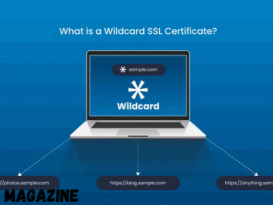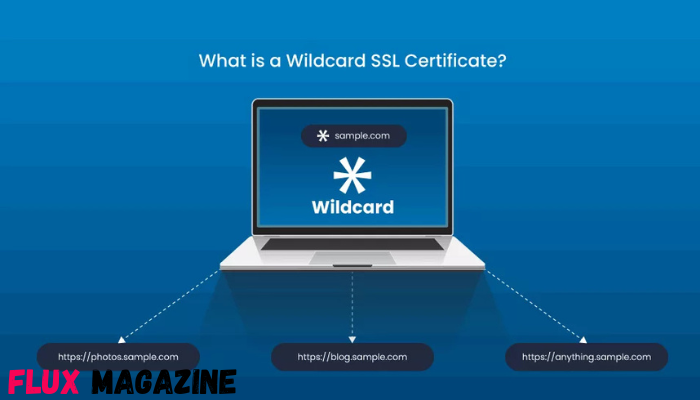Managing website security can feel like a complex puzzle, especially when your online presence spans multiple subdomains. Each one, from blog.yourdomain.com to shop.yourdomain.com, needs its own layer of protection. This is where wildcard certs, or wildcard SSL certificates, come into play. They offer a streamlined and cost-effective way to secure your entire domain family under a single, powerful certificate. This guide will walk you through everything you need to know about wildcard certs. We will explore what they are, how they function, and their significant benefits. You will also learn about practical use cases and get tips on choosing the right certificate to simplify your security management.
What Exactly Are Wildcard Certs?
A wildcard certificate is a type of SSL/TLS certificate that can secure a primary domain and an unlimited number of its first-level subdomains. Instead of buying a separate certificate for each subdomain, you can use one wildcard cert to cover them all.
The wildcard aspect is represented by an asterisk in the common name field of the certificate. For example, a certificate issued for yourdomain.com will secure:
- www.yourdomain.com
- blog.yourdomain.com
- shop.yourdomain.com
- mail.yourdomain.com
- login.yourdomain.com
This single certificate simplifies management, reduces costs, and ensures consistent security across your digital properties. Without it, you would face the administrative headache of purchasing, installing, and renewing individual certificates for every subdomain you create.
The Key Benefits of Using Wildcard Certs
Opting for wildcard certificates brings several powerful advantages for any business or individual managing multiple online platforms. They streamline security, save money, and offer flexibility.
Simplified Certificate Management
The most significant benefit is the massive reduction in administrative effort. Imagine tracking renewal dates, configurations, and installations for dozens of separate SSL certificates. It’s a recipe for human error, which can lead to security gaps or service interruptions.
With a single wildcard cert, you have only one certificate to manage. This means one purchase, one installation process, and one renewal date to remember. This consolidation frees up valuable time for your IT team to focus on other critical tasks instead of getting bogged down in repetitive certificate administration.
Significant Cost Savings
Securing each subdomain with its own certificate can become expensive quickly. As your organization grows and adds more services, the costs multiply. A wildcard certificate is a one-time purchase that covers all your current and future subdomains.
While the initial cost of a wildcard cert is higher than a single-domain certificate, the long-term savings are substantial. You pay a single fee to secure an unlimited number of subdomains. This makes wildcard certs a highly economical choice for businesses with a growing online footprint.
How Do Wildcard Certs Work?
The magic of a wildcard certificate lies in how it’s configured and validated by Certificate Authorities (CAs) and browsers. The process is straightforward but powerful.
When you request a wildcard cert, you specify your domain name with an asterisk in the subdomain part, like *.yourdomain.com. The Certificate Authority then verifies that you own and control the base domain (yourdomain.com). This validation process typically involves one of three methods:
Email Validation: The CA sends a verification email to a registered administrative address for the domain (e.g., admin@yourdomain.com).
DNS-based Validation: You are asked to add a specific record (like a CNAME or TXT record) to your domain’s DNS settings to prove control.
HTTP-based Validation: You need to upload a specific file to a designated directory on your web server.
Once you prove ownership, the CA issues the certificate for *.yourdomain.com. You can then install this single certificate on all servers that host subdomains of yourdomain.com.
Common Use Cases for Wildcard Certificates
Wildcard certs are incredibly versatile. They are an ideal solution for various scenarios where managing multiple subdomains is a necessity.
E-commerce Platforms
Online stores often use multiple subdomains for different functions. You might have shop.yourdomain.com for the main storefront, cart.yourdomain.com for the checkout process, and account.yourdomain.com for user profiles. A wildcard certificate secures all these sensitive areas, protecting customer data and payment information across the entire platform.
Corporate Websites
Large companies often segment their websites using subdomains. For example, a corporation might use investors.yourcompany.com, careers.yourcompany.com, and support.yourcompany.com. A wildcard cert ensures that every touchpoint, whether for investors, job applicants, or customers, is secure and trusted.
Development and Staging Environments
Developers frequently use subdomains to create separate environments for testing and staging new features before deploying them to the live site. Using subdomains like dev.yourproject.com and staging.yourproject.com is common practice. A wildcard certificate allows developers to secure these non-production environments easily, mimicking the live site’s security setup without added cost or complexity.
Choosing the Right Wildcard Certificate
Not all wildcard certificates are the same. When selecting one, you need to consider the level of validation and the features that best suit your needs. There are two primary types of wildcard certs available:
Domain Validated (DV) Wildcard Certificates
DV wildcard certificates offer the fastest and most affordable way to secure your subdomains. The validation process is fully automated and usually only requires proving domain ownership via email or DNS. DV certs are perfect for blogs, small businesses, and development environments where encryption is the primary goal. They provide the same level of encryption as other certificates but do not vet the organization’s identity.
Simplify Your Security with a Wildcard Cert
Managing digital security doesn’t have to be a complicated or expensive chore. Wildcard certs provide a smart, scalable, and cost-effective solution for protecting your primary domain and all its subdomains. By consolidating your security under one certificate, you save time, reduce costs, and ensure consistent protection across your entire web presence. Whether you run a small blog or a large enterprise, a wildcard certificate is a powerful tool for simplifying your security strategy.


















Show Comments (0)